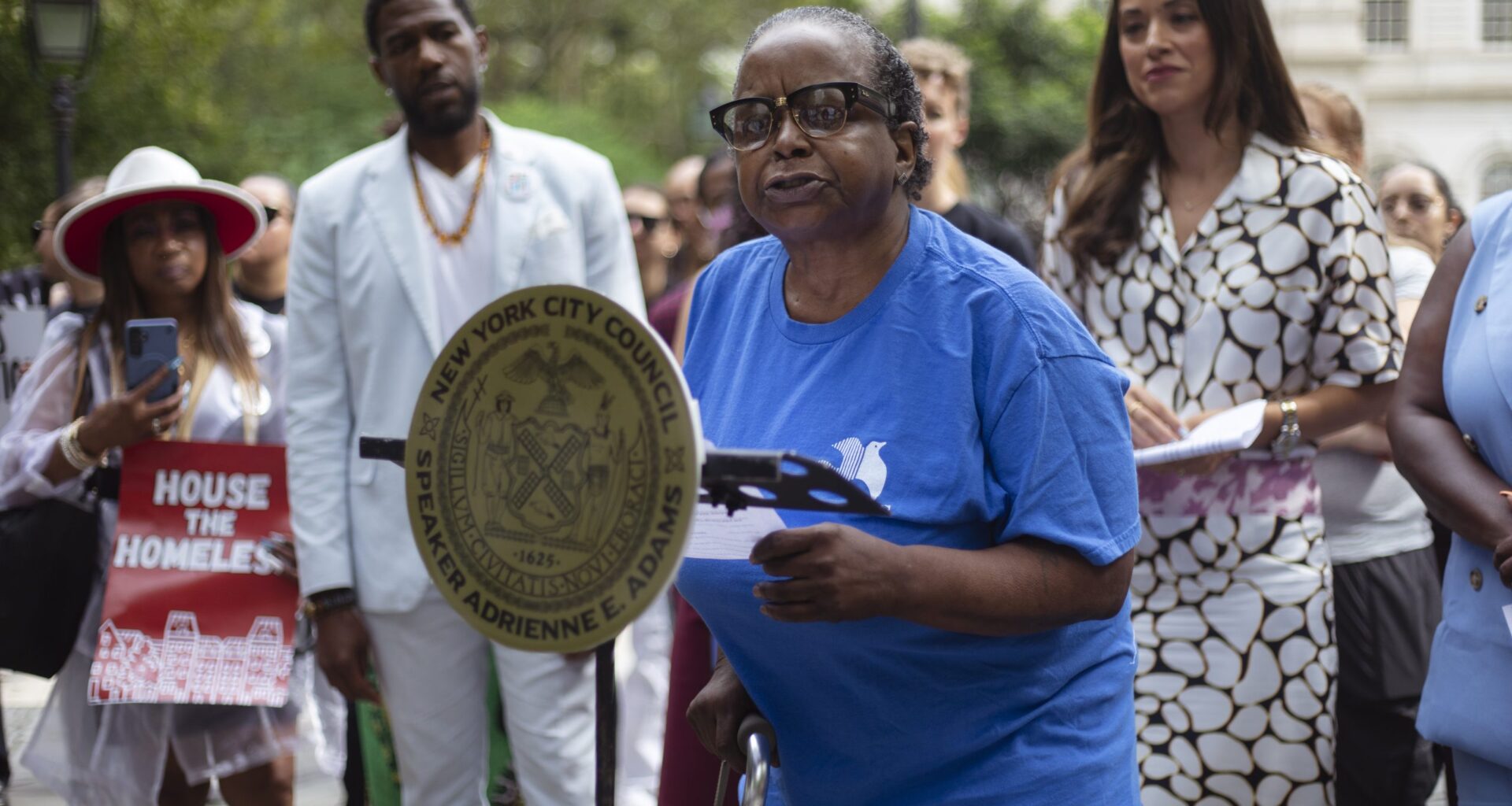Jail is not a home, but incarceration prevents people from qualifying for city-funded supportive housing, which requires a recent track record of homelessness. For this reason, the City Council passed a bill on August 14 considering time spent in prison, jail, or court-mandated medical detention to count toward time unhoused when meeting the qualifying threshold if the individual was homeless before entering custody and would remain homeless after release.
If signed into law, the legislation, known as Int. 1100, would allow someone incarcerated for 12 or more consecutive months and facing homelessness on release to qualify for supportive housing. City Councilmember Carlina Rivera sponsored the bill, which she highlighted at a press conference as one of her last major projects before she leaves office.
“Nearly 70% of people on Rikers [Island] who could benefit from supportive housing are shut out because of the chronic homelessness definition,” said Rivera. “It costs over $500,000 a year to incarcerate them, but supportive housing saves public dollars and it changes lives. We have a responsibility to recognize incarceration as a form of housing instability [and] remove systemic barriers that keep people trapped in the vicious cycle of jail and homelessness and back again.”
The city’s supportive housing model offers people experiencing homelessness low-cost apartments, tied in with social services like mental healthcare and addiction treatment. Formerly incarcerated individuals are nearly 10 times more likely to be unhoused, with women and people of color facing even higher rates, according to a 2018 Prison Policy Initiative report. More than half the population on Rikers Island receives some form of mental health treatment.
As a result, policies criminalizing homelessness lead to a “revolving door” with incarcerated people facing re-arrest due to low-level “quality of life” offenses like public urination or aggressive panhandling. Last year, the Supreme Court’s Grants Pass ruling set case law toward allowing cities to arrest people for sleeping outside.
Last year, the Independent Budget Office found roughly one-third of the jail population in 2023 experienced homelessness or housing instability during a current or previous detainment.
Int. 1100 proponents say supportive housing will interrupt the “revolving door” cycle by not only preventing homelessness but addressing mental health and substance use among formerly incarcerated individuals.
Rivera estimates that around 2,600 people held on Rikers Island each year could benefit from her legislation and it would cost roughly $108 million to place them in supportive housing, as opposed to $1.4 billion to incarcerate them.
Supportive housing resident Helen Taylor spent her birthday at the press conference recounting how an apartment from service provider Fortune Society saved her life after incarceration and championed Int. 1100 in hopes that her story would not be so unique.
“Having my apartment — the very first apartment I have ever had in my life — has made a difference in my life today,” said Taylor. “It’s a step closer to fulfilling my mission to a better life. It’s not just a place to live; it’s a tremendous amount of support … I am part of a community: There are people that check on me; my birthdays are celebrated; when I had COVID, people went out and bought me groceries. Plus they have done so much more.
“[Living] in my apartment [and] working with such wonderful people at the Fortune Society allowed me to go from … sleeping in parks to performing ‘Shakespeare in the Park’ at the Delacourt Theater in Central Park.”
Elected officials like Public Advocate Jumaane Williams; City Comptroller Brad Lander; and Council Members Alexa Aviles, Althea Stevens, and Lincoln Restler also came out to support the bill.
“Jail is not a home for anyone at any point in time, so we are here to challenge this country’s addiction to mass incarceration and profiting over putting Black and Brown bodies in jail for profit,” said Aviles.
“When we’re in a time where we see [in] other cities, the ‘Orange Man’ criminalizing homelessness, this bill is a symbol that New York will not stand for that,” added Stevens.
Shortly after the press conference, Rivera confirmed she would step down from office before she terms out this winter, as first reported by Politico.
Like this:
Like Loading…
Related
